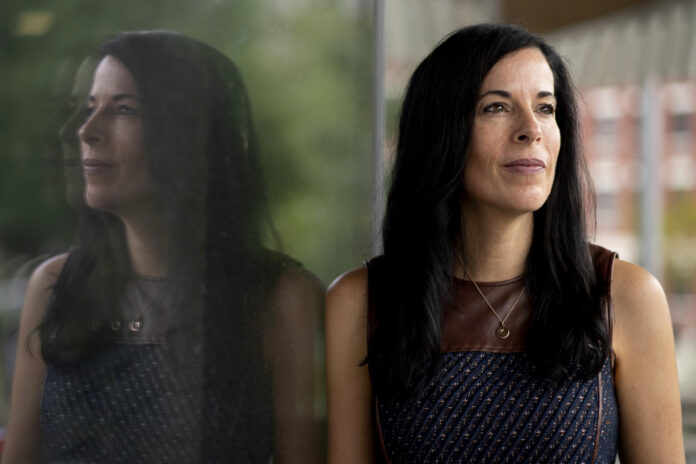
By Eva Botkin-Kowacki
News at Northeastern
I don’t have to tell you, reader, that the past two years have been taxing, to say the least.
And it doesn’t just feel like two years have passed anymore. Friday, March 11, marked the anniversary of the date on which the World Health Organization characterized COVID-19 as a pandemic. We have officially lived through two years of pandemic life. And, even though the United States has begun to put the pandemic in the nation’s rearview mirror, tragedy just keeps on coming.
“It’s just been one thing after another. We’ve been sitting with challenges that most of us in our lifetime haven’t necessarily seen before. It’s a lot to process, make sense of and adapt to,” says Kristen Lee, teaching professor of behavioral science at Northeastern and author of Worth the Risk: How to Microdose Bravery to Grow Resilience, Connect More, and Offer Yourself to the World. “Now, with the [Russian] invasion [of Ukraine] and the war, it feels just like an unbearable load.”
It is moments like these when hot tips on how to cope with a constant onslaught of heavy news start to circulate. But they are not magic, says Lee, who studies resilience.For those observing from afar, violence and death fill newscasts, headlines, and social media. Pundits question whether there might be a third World War brewing. A deep uncertainty continues to dominate.
“Healing is within our reach. We can heal through atrocity,” she says. “But it’s not a three-step pop psychology solution.”
Here are a few things that Lee says to think about when feeling overwhelmed by the enormity of the world’s problems:
What you’re experiencing isn’t completely new. But …
“People have suffered across human history,” Lee says. “What makes it unique is we have access to unprecedented information. We can be tuned in continually. So that repeated news cycle in social media can really amplify our fears and anxiety to a whole different level than perhaps past generations, that didn’t have those technology tools, had to experience. It is a lot for the human mind.”
But, she adds, “We have a lot to leverage these days. We have a lot of resources and knowledge to harness.”
Tune in … to yourself.
“Sometimes I think people feel like, ‘I need to watch [the news],’” Lee says. And “being informed isn’t necessarily problematic. We can hold space for difficult news and difficult circumstances.”
However, a reprieve from the barrage of news can give you time to assess what you need and focus on what is within your “locus of control,” she says.
“There are things we can do to maneuver thoughtfully each day, to leverage our own strengths, our own values, and the resources we have,” Lee says. “What’s important is that we discover what helps nourish us each day. The micro-strategies, if you will, the break rituals, the small things we can do that have a positive cumulative effect.
“That doesn’t mean we’re cavalier or we’re not socially conscious and we don’t care and we’re turning a blind eye. But if we do those things, we’re more likely to sustain ourselves so that we can be conscious global citizens, so that we can show up intentionally and thoughtfully with active contribution in the world.”
Resilience might not mean what you think.
“One of the big myths of resilience is that it’s a trait-based thing. You’re either born with it or not. It’s this gritty, ‘suck it up, don’t let anyone see you sweat,’ mindset,” Lee says. That’s not true, she says; every human is resilient.
“Resilience is a process we’re all capable of engaging with and we can cultivate it in our lives. It is a process of enduring adversity and being able to sustain, being able to renegotiate those initial provocative states,” Lee says. “As a species, we are wired to adapt, and because we’re metacognitive, we can think about our thinking, we can reflect, we can identify the tools and the strategies and the levers that help keep us going.
“We are tapping into protective factors like our sense of agency, our sense of solidarity and community, problem-solving skills, analytical skills,” to keep going, she says.
(Reprinted with permission from the News at Northeastern.)













